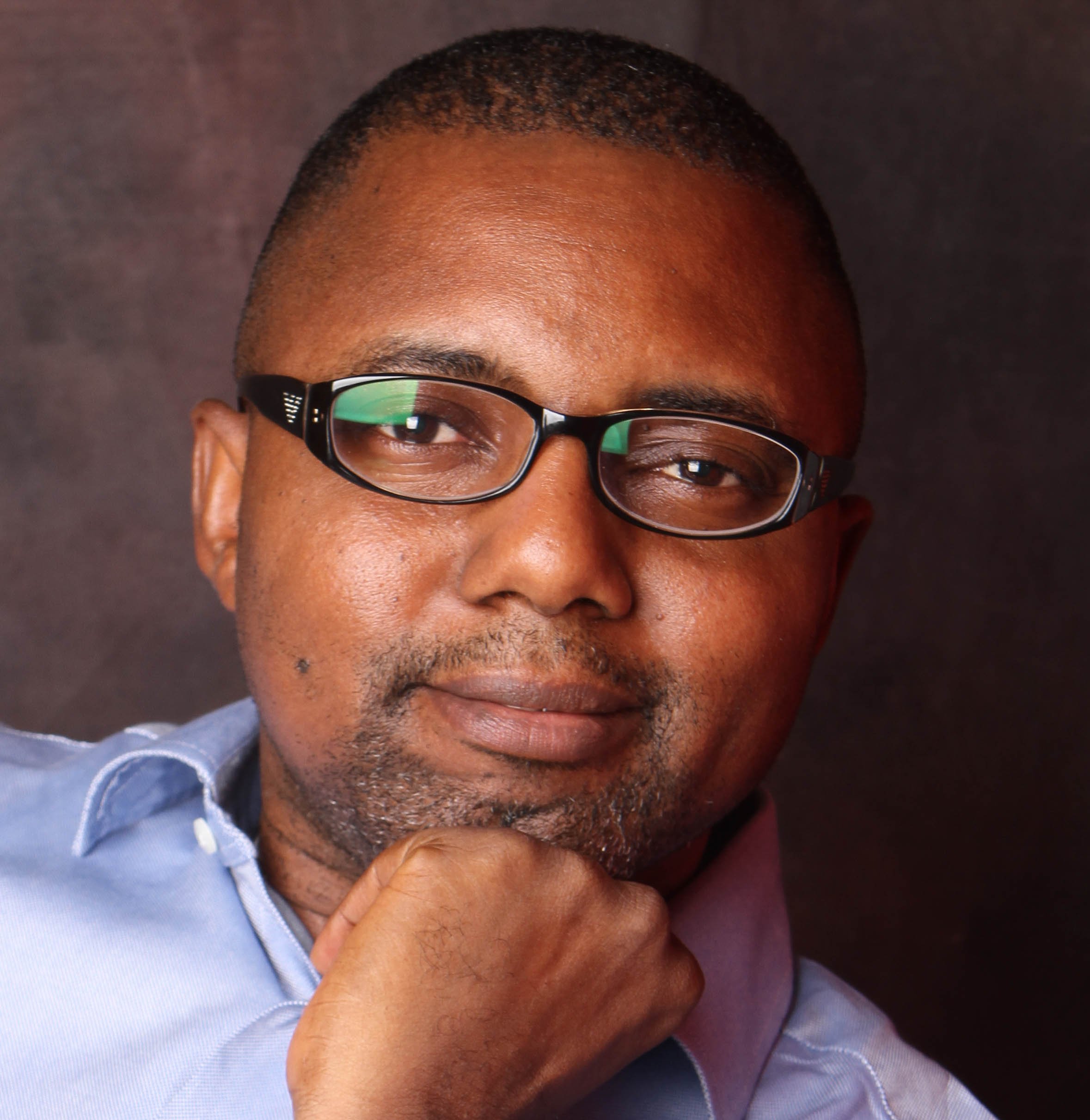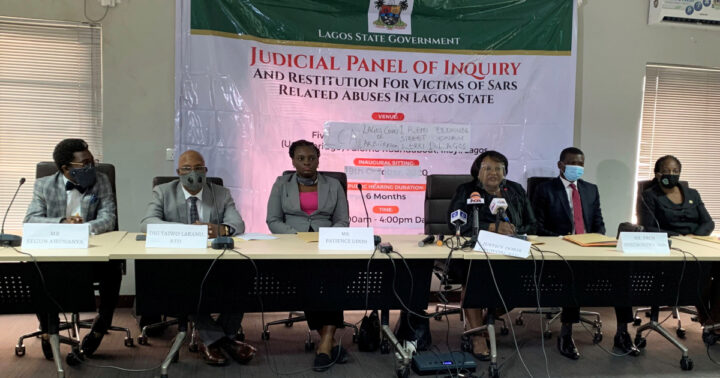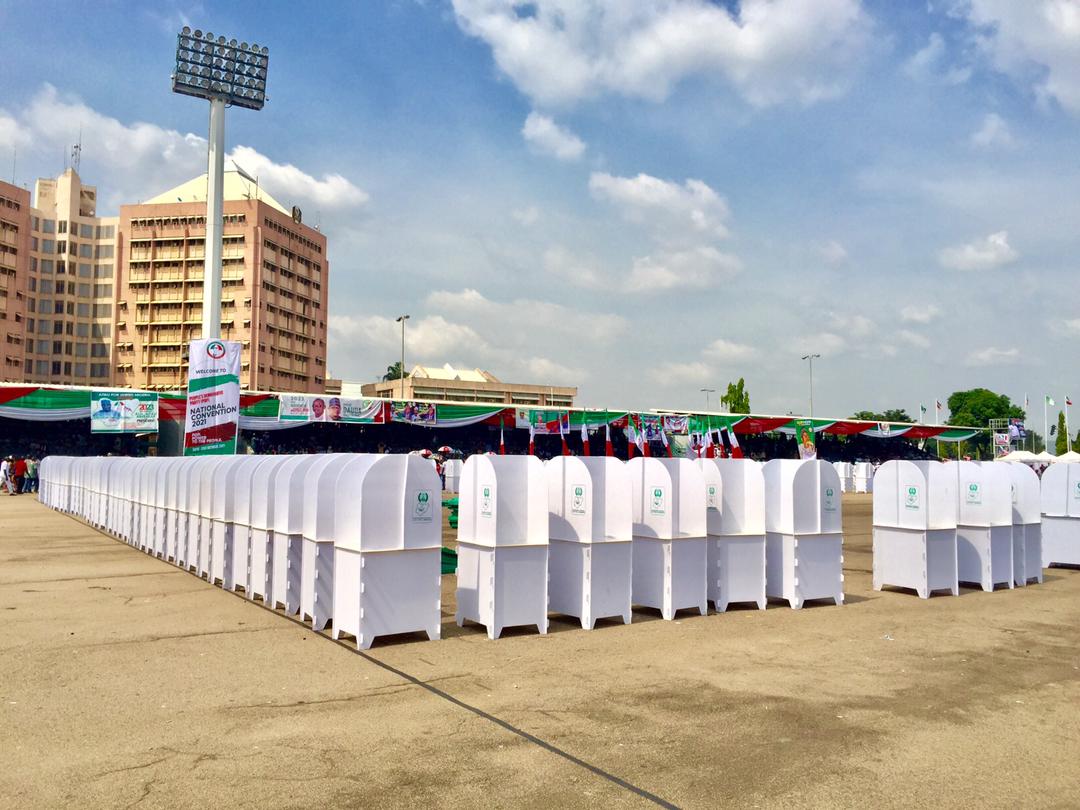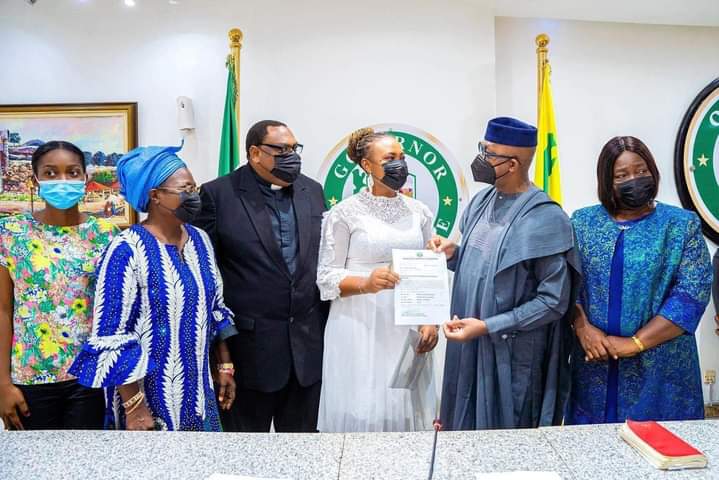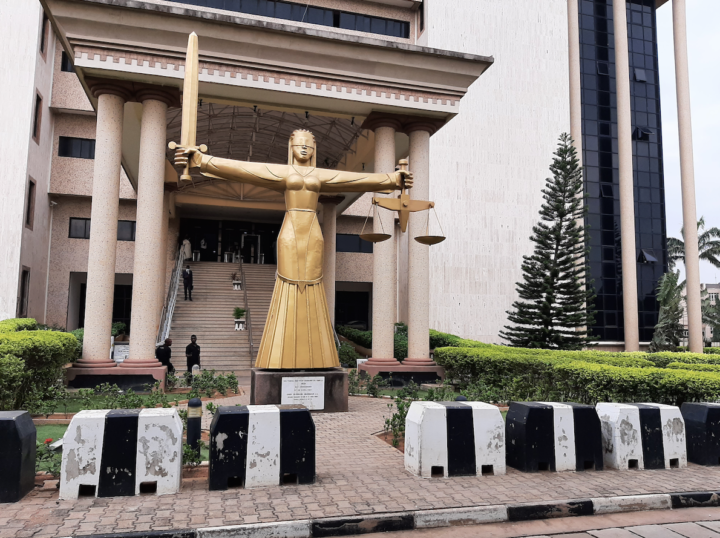A judicial panel set up to investigate alleged police brutality and the shooting of protesters launches in Lagos, Nigeria October 26, 2020. REUTERS/Libby George
It has taken a year. A year of gathering evidence, listening to and cross-examining witnesses, visiting key sites, receiving and reading through presentations, and scores of other allied activities. In the end, the judicial panel of inquiry (JPI) set up by the Lagos state government in the aftermath of the bloody and destructive #EndSARS protest of October 2020 reached the conclusion that, indeed, a massacre of innocent citizens by men of Nigeria’s security forces occurred at the Lekki Toll Plaza on the night of October 20, 2020. That night, known in folklore as 20-10-20, is now assured a place in the national Hall of Infamy.
The events leading up to that night are well known. For three weeks, youths had staged protests in many cities of Nigeria. Their demands were, narrowly, for the disbandment of the special anti-robbery squad (SARS), an arm of the Nigeria Police, hence the name and hashtag #EndSARS. More broadly, it was to demand good governance and better treatment of citizens. The protests drew wide support across the country, with the police formally disbanding the dreaded SARS and giving assurances that changes will be made to its operations. Despite assurances, including from the president, the protests persisted as youths demanded action rather than verbal assurances.
Over time, the ground zero of the protest was the Lekki Toll Plaza in Lagos. It was at this location, on the night of 20-10-20, that the Government, tired of the seemingly intractable and unending nature of the protests, deployed soldiers under the cover of darkness to disperse the protests. A few hours before the soldiers invaded the Lekki Toll Plaza, the Lagos state government had announced the imposition of a curfew to begin that evening. With precious little time between the announcement of the curfew and its implementation, the Lekki Toll Plaza retained scores of the youths that had made the place home for weeks. These youths, waving the Nigerian flag and singing the national anthem in defiance, were to face the full wrath of the detachment of the Nigerian Army that was deployed there.
The events of that night have been disputed since. On one hand are those who classified the event of that night as a massacre of innocent citizens and an unwarranted deployment of force at defenceless citizens. On the other are many who saw little or nothing untoward in the Nigerian Army using deadly force to disperse the crowd. The report of the JPI details the events of the night including the names of victims (dead, missing and injured); how the army used live and blank bullets; how the Toll Plaza management switched off lights and altered CCTV records; and how the scene was quickly cleaned and sanitised in what amounted to “an attempt to cover up” evidence.
Advertisement
There should be no joy in the JPI report. Nor vindication. Yes, the panel has confirmed what many knew and what many others, sadly, denied. Ordinarily, there should be a celebration of the arrival of this moment, a moment when history vindicated those who stood on its right side despite the enormous amount of gaslighting and shamed those who derided them for insisting that a major sin had been committed against the people.
But what is the joy in confirming that the state used its powers of coercion disproportionately and brutally, not at outlaws but at flag-waving, anthem-singing citizens? Where is the joy to be derived from the confirmation that scores were killed and injured for peacefully gathering and asking to be treated decently by the agents of the state? How can Nigerians find joy in knowing that fellow citizens chose to ignore the evidence before their very eyes and, instead, prioritized support for the sitting government?
With names now attached to the victims of the events of that night, the first order of business is to pray for the repose of their souls. These were authentic heroes who trusted that their faith in the constitution of the country and the rights it gave them, and their abiding belief that the national flag, assured them of protection. They were tragically wrong. It is to be hoped that their sacrifices will not be wasted and their desire for a better nation will manifest to the honour of their memories.
Advertisement
Next is to thank the living heroes of the protests, those who refused to give in to the disinformation despite the propaganda machine unleashed to discredit them. Chief amongst them is Obianuju Catherine Udeh, popularly known as DJ Switch. She was the one who live-streamed the events of that night and faced huge vitriol from many quarters, ultimately leading to her seeking refuge outside the country. That she has been proved right with regards to her reports is scant reward for the price she has had to pay.
There is also room to thank the Lagos state government under Babajide Sanwoolu. Knowing fully well that some of its actions led to the massacre and chaos, it could have looked the other way and hoped to ride out the reactions that followed the incident of 20-10-20. It did not and went back to expand the scope of the panel to cover the event and provided full cooperation to it. That decision, leading to confirmation of the dastardly events of that night, is the reason why closure is now possible.
The JPI made some recommendations. These are very reasonable and sound ones. Many of these are no different from the demands of the #EndSARS protesters. The JPI rightly called, amongst others, for police reforms; sanctioning of erring officers of the state; a public apology to the protesters and compensation for victims; and the memorialisation of the Lekki Toll Gate Plaza. Nothing in the long list of recommendations is earth-shaking, and many may even feel that the JPI has not gone in hard enough.
Implementing the recommendations should not be difficult for the governments — federal and state — provided they can find the will to do so and not allow political considerations to get in the way. By doing so, the country can start the process towards some form of healing. It can start the process of binding up wounds and making the necessary corrections so that events of 20-10-20 are never repeated. It is to this legacy that all, citizens and governments, must commit.
Advertisement
Adetayo is a public affairs analyst
Views expressed by contributors are strictly personal and not of TheCable.
Add a comment
